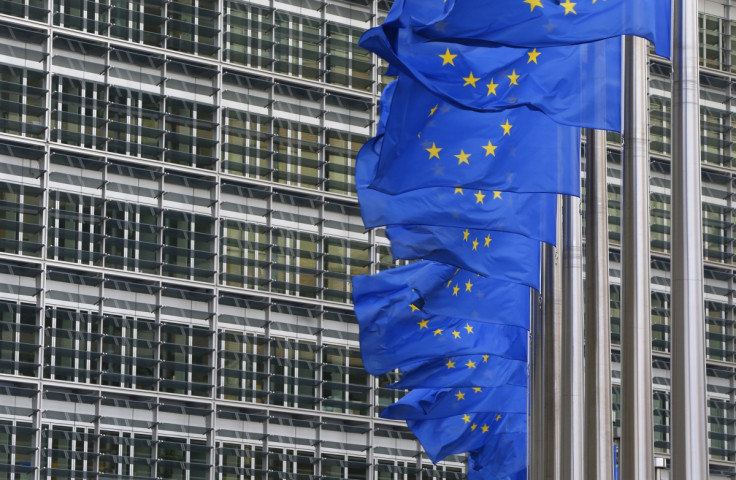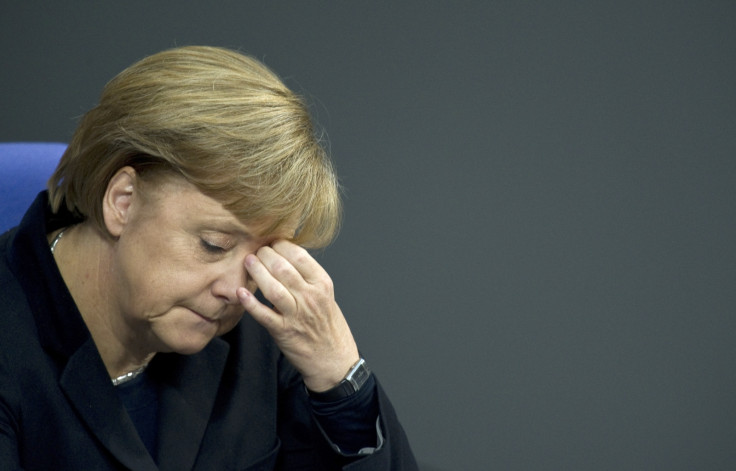William Keegan: United States of Europe falls short of political and monetary union dream
The combination of the crises in Ukraine, Greece, and - let's face it - the eurozone in general, is rightly causing huge concern in Washington.
The United States that came to the rescue of Europe during the Second World War and bailed it out afterwards must despair over whether we on this continent can ever get our act together.

Winston Churchill himself occasionally waxed lyrical about the dream of a United States of Europe and even at one stage contemplated a union of Britain and France.
But in the end, he with his American mother, thought UK/US ties were so close that if it were ever to be, the United States of Europe should begin at Calais.
Throughout Britain's agonising over its place in Europe, successive American administrations have encouraged us to play our full part. The Obama administration is manifestly horrified that a future Conservative government would even contemplate risking a referendum on whether we should leave the European Union.
Depressed Greeks
The Obama administration is also horrified by the rigid position being adopted by the rest of Europe to the new Greek government's pleas for an end to austerity. As President Barack Obama himself told CNN over the weekend: "You cannot keep on squeezing countries that are in the midst of a depression."
Can't you? Yes you can, apparently, if you are the German government, with its anti-diluvian approach to economic policy. Worse still, in a classic example of "divide and rule" we are told it is not just Germany but other countries, such as Portugal, who have suffered the pain of austerity and do not wish to see the Greeks receive special treatment.
The Greek prime minister and finance minister seem to have incurred the wrath of other capitals after a whistle-stop tour in which (surprise, surprise) they indicated they did not make their electoral promises for nothing and are serious about the need for an end to austerity.

While they probably thought Greece was overambitious to join the eurozone in the first place, both the US administration and the British government are worried about the prospect of financial instability, not to say chaos, should Greece be so cold-shouldered by the rest of Europe that it is forced to leave the eurozone (Grexit, as it is known).
Enter stage right, Alan Greenspan, former chairman of the US Federal Reserve, a sage who was thought master of the universe until his economic model was shattered by the onset of the 2007-09 financial crisis that was never meant to happen.
Despite his fall from grace, when Greenspan speaks out he is still big news and he has opined in no uncertain terms that "it is only a matter of time" before Greece leaves the eurozone and, indeed, "before everyone recognises that parting is the best strategy".
European experiment
I suspect, however, that Greenspan's thoughts stretch even further. Way back at the outset of the eurozone he described it as "an interesting experiment". There is the obvious point that if Greece were to exit, there could be a domino effect. I do not pretend to know how this is all going to pan out, but the outcome is unlikely to be funny.
The fact of the matter is that in a proper political and monetary union, as Mark Carney, governor of the Bank of England reminded us in a recent speech in Dublin, economic and financial risks are automatically shared: compensation for distressed areas of, for example the US and UK, is routinely channelled through existing fiscal unions.
In such circumstances you do not get people, such as the German government is doing now, questioning help for fellow members of the union who, like the Greeks, are in serious trouble.
But we are a long way from a European political union. Meanwhile, G20 finance ministers meet in Istanbul this week with Jack Lew, the impressively Keynesian US Treasury Secretary, crying out for countries such as Germany to take measures to expand demand in Europe.
Good luck to him.
William Keegan is a journalist and academic who is the senior economics commentator at The Observer.
© Copyright IBTimes 2025. All rights reserved.






















